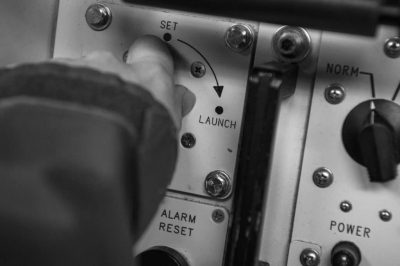Oppenheimer Biographer Joins Nobel Laureates, Navajo Nation, and Atomic Veterans to Call for Justice for Communities Hurt by Nuclear Weapons Testing and Mining
Letter to Congress calls for action to strengthen Radiation Exposure Compensation Act

All Global Research articles can be read in 51 languages by activating the Translate Website button below the author’s name.
To receive Global Research’s Daily Newsletter (selected articles), click here.
Click the share button above to email/forward this article to your friends and colleagues. Follow us on Instagram and Twitter and subscribe to our Telegram Channel. Feel free to repost and share widely Global Research articles.
***
As “Oppenheimer” begins its run in theaters nationwide this week, the author of the book the film is based on, Kai Bird, and Nobel laureates have joined with survivors of U.S. nuclear weapons testing to urge Congress to rectify the harm this group has suffered.
In a letter to Congress released today, the group called for Congress to strengthen and extend the Radiation Exposure Compensation Act (RECA)—a program that provides financial support to people suffering from cancers and other illnesses related to exposure to radiation from the testing and production of U.S. nuclear weapons but leaves out people who lived downwind of the Trinity test site in New Mexico, along with others.
Legislation has been introduced in the House and Senate that would for the first time extend healthcare benefits and compensation to communities impacted by the test of the first atomic bomb in New Mexico, as well as downwind communities in Colorado, Idaho, Montana, and Guam, and cover remaining areas of Nevada, Utah and Arizona.
In addition to Bird, the Pulitzer Prize winning co-author of American Prometheus: The Triumph and Tragedy of J. Robert Oppenheimer, signers include Nobel prize winning scientists Roald Hoffmann, Roger D. Kornberg and Martin Chalfie; Dr. Buu Nygren, President of the Navajo Nation, which is home to many downwinders and former uranium workers; engineer and science educator Bill Nye; groups representing people who lived downwind of nuclear weapons tests; veterans who cleaned up test sites; uranium miners; and leaders in the peace and security field.
The letter was coordinated by the Union of Concerned Scientists (UCS) and will continue to collect signatures.
“‘Oppenheimer’ provides an opportunity for some public scrutiny of nuclear weapons’ legacy,” said Lilly Adams, senior outreach coordinator in the Global Security Program at the Union of Concerned Scientists. “People who lived downwind of the Trinity test are, right now, fighting for recognition and compensation for the harms they and their loved ones suffered. RECA is a valuable program with bipartisan support, but too many people are left out—Trinity test survivors and many others. These are our neighbors: veterans, farmers, ranchers, miners, families from across the country who have gotten sick or have lost loved ones. Downwinders have been fighting for justice for decades, and they cannot wait any longer. We need Congress to act now.”
RECA currently limits compensation to Downwinders who lived in parts of Nevada, Utah and Arizona when above-ground nuclear tests were conducted between 1945 and 1962, despite studies indicating the radioactive fallout and radiation reached several states in the Mountain West. Many groups of uranium miners are also excluded, including any workers employed after 1971.
*
Note to readers: Please click the share button above. Follow us on Instagram and Twitter and subscribe to our Telegram Channel. Feel free to repost and share widely Global Research articles.
Featured image: A US Air Force commander simulates launching a nuclear weapon during a test. Nuclear command and control systems already incorporate various forms of automation. As countries build new systems, will they insert more artificial intelligence? Credit: US Air Force/Staff Sgt. Christopher Ruano.

